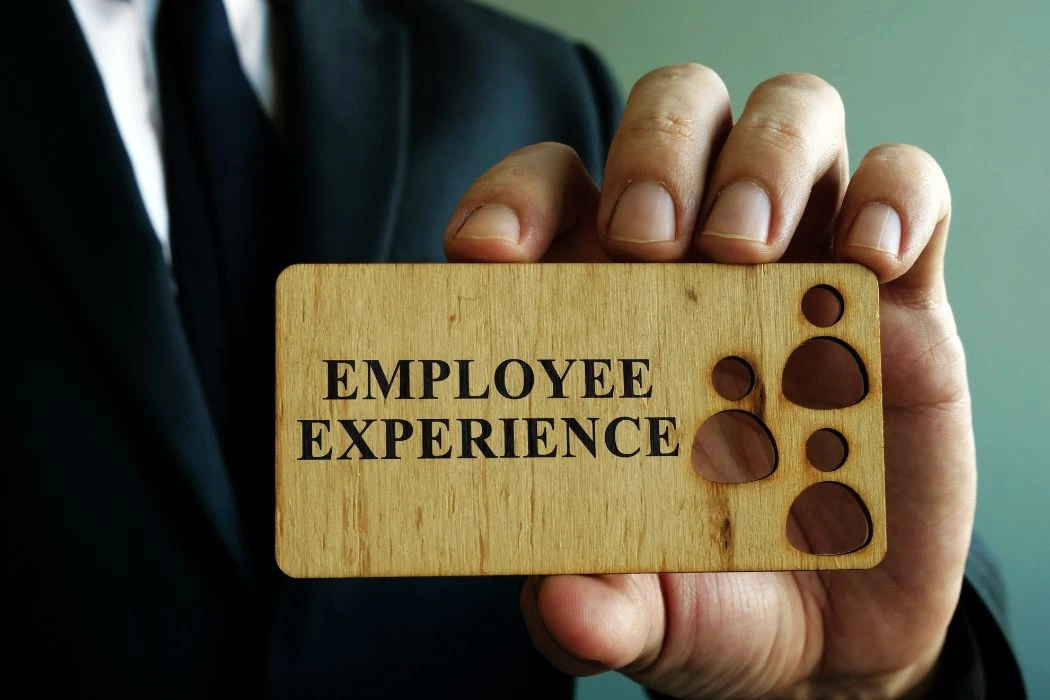What is Employee Experience (EX)?
Employee Experience encompasses everything an employee encounters, feels, and perceives throughout their journey in an organization—from recruitment and onboarding to day-to-day work and eventual exit. It’s about creating an environment where employees feel valued, supported, and empowered to deliver their best work.
Key elements of EX include:
- Work environment and culture.
- Access to tools and resources.
- Opportunities for growth and development.
- Leadership and management support.
- Work-life balance and overall well-being.
Why is Employee Experience Important?
- Boosts Engagement: A positive EX fosters a sense of belonging, leading to higher engagement and commitment.
- Enhances Performance: Satisfied employees are more productive, innovative, and motivated.
- Attracts Top Talent: Organizations with a strong EX reputation are magnets for skilled professionals.
- Reduces Turnover: Happy employees are less likely to leave, reducing recruitment and training costs.
- Strengthens Employer Brand: EX is a key differentiator in a competitive job market.
Why Focus on Employee Experience Now?
- Changing Workforce Dynamics:
- Millennials and Gen Z prioritize meaningful work and a supportive culture over paychecks alone.
- Hybrid and Remote Work Trends:
- The shift to flexible work models demands a renewed focus on digital and emotional experiences.
- Post-Pandemic Challenges:
- The COVID-19 pandemic highlighted the importance of employee well-being and mental health.
- Competitiveness:
- Companies with superior EX outperform their peers in attracting, retaining, and empowering top talent.
Advantages of Focusing on Employee Experience
- Improved Productivity: Employees with access to the right tools and support systems can focus on high-impact tasks.
- Stronger Collaboration: A positive culture encourages teamwork and knowledge sharing.
- Increased Innovation: Empowered employees are more likely to contribute creative ideas and solutions.
- Higher Retention Rates: A fulfilling experience reduces attrition, saving resources and maintaining continuity.
- Better Customer Experience: Happy employees often translate into satisfied customers.
Challenges in Optimizing
- Personalization:
- Catering to diverse employee preferences and needs can be complex.
- Technology Gaps:
- Outdated tools and systems hinder efficiency and satisfaction.
- Leadership Alignment:
- Without buy-in from leadership, EX initiatives may fall flat.
- Cultural Shifts:
- Transforming an existing culture to prioritize EX takes time and effort.
- Balancing Costs:
- Implementing EX improvements requires financial and resource investments.
Best Practices for Enhancing
- Listen to Employees:
- Conduct regular surveys, feedback sessions, and one-on-one meetings to understand employee needs and concerns.
- Invest in Technology:
- Provide modern tools, platforms, and systems that enhance collaboration and productivity.
- Prioritize Well-Being:
- Offer mental health resources, flexible schedules, and wellness programs.
- Foster Career Growth:
- Create clear pathways for learning, development, and advancement within the organization.
- Build a Positive Culture:
- Encourage transparency, recognition, and inclusivity across teams.
- Streamline Onboarding:
- Ensure new hires feel welcomed and equipped to succeed from day one.
- Celebrate Success:
- Acknowledge and reward contributions to keep employees motivated and appreciated.
The Future of Employee Experience
- Data-Driven Insights: AI and analytics will play a larger role in understanding and improving EX.
- Hybrid Work Optimization: Organizations will refine strategies to create seamless experiences across remote and in-office environments.
- Focus on Personalization: Tailored experiences for individual employees will become a standard.
- Sustainability and Purpose: Employees will increasingly value companies that align with their personal values and ethical standards.
Closing Notes
Investing in Employee Experience is not just a strategy—it’s a necessity for organizations aiming to thrive in today’s dynamic workplace. By focusing on the holistic journey of employees, companies can unlock their full potential, fostering better performance and driving long-term success.
Remember, a great EX isn’t about perks or quick fixes—it’s about creating a meaningful, supportive, and empowering environment where employees feel inspired to do their best work. After all, happy employees lead to happy customers and a stronger business. It’s time to put your people first!
USEFUL LINKS: 5 Tips for Hiring Remote Developers in No Time | Full Remote Global IT Teams: The future of work is here

